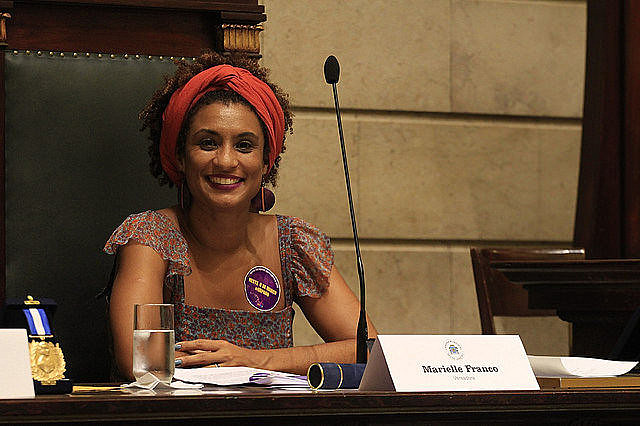Seven months after the murder of Rio de Janeiro councilwoman and human rights activist Marielle Franco and driver Anderson Gomes, the head of the state’s Public Security department, Richard Nunes, told Brazil’s TV channel GloboNews on Thursday that the police have identified some of the individuals involved in the crime, which happened on Mar. 14 in downtown Rio.
Nunes confirmed paramilitary militia groups were involved in the murder of the councilwoman and black activist, who was a fierce human rights advocate, fighting especially for the rights and dignity of people who live in the city’s slums.
According to Nunes, authorities will have a solution for the case by Dec. 31, when the federal intervention in the state is expected to end, according to a decree signed by president Michel Temer.
“It’s not a hate crime – I said that in the first interview I granted [about the case] in March. It’s about politics, about going against some interests. And the militia, if it did not order the hit, it is definitely involved in the execution,” Nunes stated.
While the investigation has extensive files and some individuals have been identified, the head of the state’s public security department said he intends to gather consistent evidence that cannot be challenged in the future.
When asked about whether politicians could be involved in the crime, Nunes said “probably.”
The case
Rio de Janeiro councilwoman Marielle Franco had a long history of fighting for human rights and was the fifth most voted-for member of council in the city’s 2016 election, skillfully bringing together gender, race, and class issues.
Days before her murder, when she was shot at least 13 times on the night of Mar. 14, more than eight months ago, she was appointed rapporteur to a committee established in Rio’s city council to monitor federal armed forces after they took over the city’s security in February. Anderson Gomes, who was driving the councilwoman home when the crime happened, was also shot dead.
Their execution provoked great uproar all over Brazil and the world. In May, the Organization of American States (OAS) held hearings and questioned the Brazilian State about the federal military intervention in Rio de Janeiro and the execution of the councilwoman and the driver, after twenty social organizations filed petitions with the OAS Inter-American Commission on Human Rights (IACHR) to hold the hearings.




